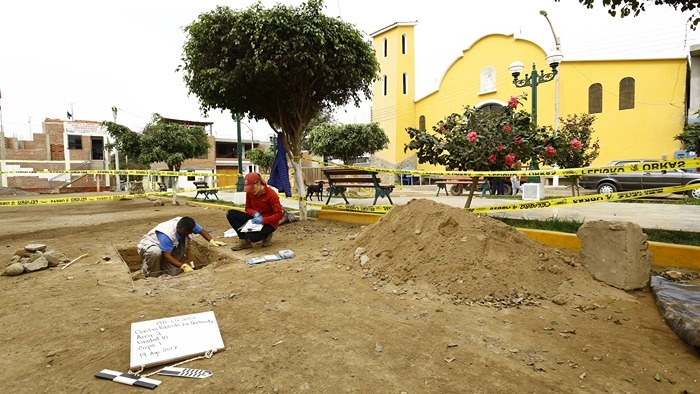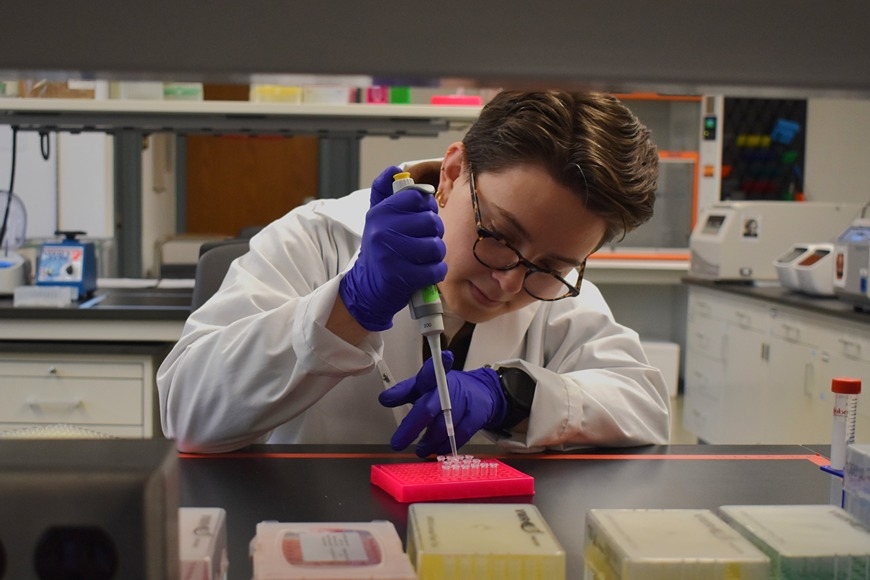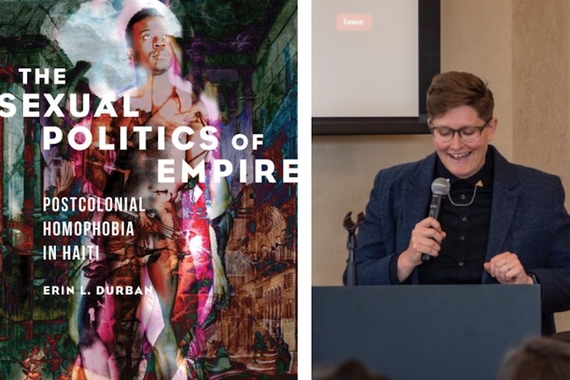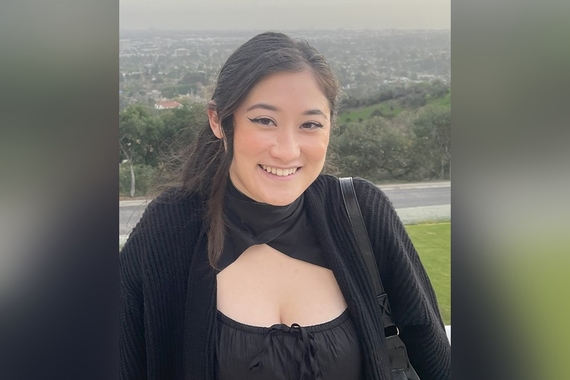The DNA of Diaspora
Laura Pott is a PhD candidate in the Department of Anthropology and a recipient of the 2023 Fink Summer Research Fellowship. Their research project, “Proyecto de investigación arqueológica de La Quebrada,” investigates the genetic material of excavated individuals in La Quebrada, Peru, a town atop a colonial-era sugar plantation. Pott’s team’s research is helping to advance their field’s understanding of DNA in the African diaspora and connect the people of La Quebrada to their heritage.
What do you call your project and how would you summarize it? How does it connect to your broader research interests?
The title of my lab group's project is the “Proyecto de investigación arqueológica de La Quebrada” (“La Quebrada Archaeological Research Project”). From 2017-2018, archaeological excavations led to the discovery of the remains of at least 245 individuals in a cemetery in the town of La Quebrada, Peru. Residents of La Quebrada and members of a local heritage organization initiated a research project with the help of a team of archaeologists.
Church archives and oral histories from residents identified the cemetery as a burial ground for enslaved Africans from the plantation, but historical records about the hacienda’s history provide little information about their ethnicities or health. Starting in 1781, over 500 enslaved Africans were brought to a sugar plantation named Hacienda La Quebrada, which was owned by the Catholic priests of the Orden de la Buena Muerte. In the present-day town of La Quebrada, many residents still self-identify as Afro-Peruvian and recognize a heritage relationship with the people who lived on the colonial plantation, who are likely their ancestors.

Genomics is a key piece of reconstructing the effects of the transatlantic slave trade on the African diaspora that complements the archaeological work that has already been performed, which is how my research interests connect to this project. I am broadly interested in human population genetics, ancient DNA, and admixture [when individuals from two or more previously isolated populations have offspring]. During the summer, I have been contributing to the project by investigating whether the skeletal remains of individuals in the cemetery contain ancient human DNA and whether we can identify the individuals' maternal haplogroups [or genetic lineage groups based on shared ancestral DNA markers] using those data or if we need to collect more samples in the future.
What's exciting about your project? What has this award allowed you to do?
This award has helped me work towards making posters for two different conferences, the annual meeting of the American Society of Human Genetics in November 2023 and at the American Association of Biological Anthropologists conference in March 2024. I will also be using preliminary data from this summer's work in an application for the National Science Foundation’s Doctoral Dissertation Research Improvement Grants, as well as my dissertation proposal defense this year.
This project is helping to advance my field by focusing on genomic data from an underrepresented population. Most human-genetics research is about European-descended populations, and previous genomic research on enslaved populations has only focused on individuals from North America. This project is also one of the first bioarchaeological and ancient DNA studies of an African-diasporic community in Peru.
Although the translatlantic slave trade has played a major role in the history of Peru, historical documents provide limited information about enslaved Africans and their descendants. Genetic research offers another way to access this information. In addition to better understanding the genetic diversity of Afro-diasporic populations, this project deepened a long-term collaboration with the La Quebrada community and promotes recognition of contemporary Afro-Peruvian communities, who are often made invisible.
What partnerships has this award helped you develop and nurture?
This project is a collaboration with the Mesa de Trabajo Afro-Peruana, which is a group of representatives from La Quebrada and San Luis District who meet regularly to advance their goals for the town. They were enthusiastic about the results from this summer, and are interested in expanding the study to include a larger sample of the individuals from the cemetery. They were also interested in modern DNA analysis to identify specific relationships they have with the individuals buried in the cemetery, which will be a future area of research.
How is your project making a difference in the world?
This project is very important to the community that we are working with, and they are curious about what kinds of information DNA can provide about their ancestors and their genetic links to them. By collaborating closely with the La Quebrada community, we are fostering a sense of identity and recognition for Afro-Peruvian communities who are often overlooked in Peru.
Several women on the heritage board collaborating on the project commented that it was empowering to know that women have an important role in gaining insight into their community's past, since mitochondrial DNA is used to trace maternal lineages. Knowing more about their ancestral origins instills a sense of pride and connection, which is the community's goal for the children in the town. Next summer when my lab group visits Peru again, we want to develop educational materials specifically for schools with the research assistants working in the town.
The Beverly and Richard Fink Graduate Fellowship
The generous support of CLA champions Beverly and Richard Fink provides outstanding fellows like Laura with these impactful opportunities.
This story was edited by an undergraduate student in CLA.



